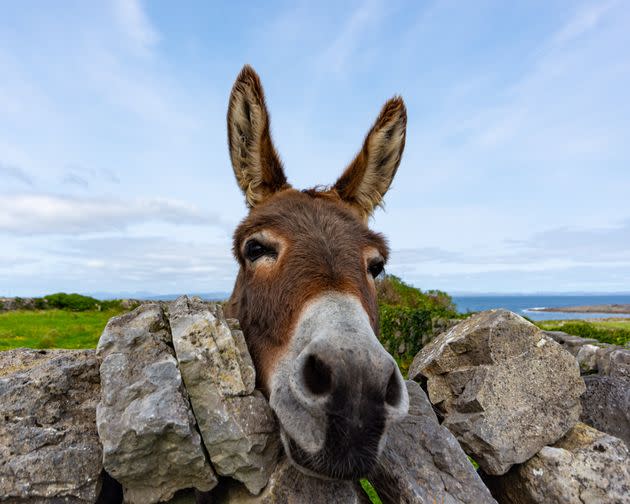I Just Learned Why We Say 'Donkey's Years', And I'm Shocked

There are some things, like WiFi and satellites, that I trust for no reason ― I have no idea how they really work.
The same goes for certain words and phrases (what is a “fangled” when it’s not “new”?).
We’ve written before at HuffPost UK about how the “deserts” in “just deserts” is said like the sweet treat, pronounced like the sandy area, and means neither.
But what about “donkey’s years” to mean a long period of time? Are donkey years exceptionally long? I thought they had a longish, but not wild, lifespan.
Here’s what the phrase actually means (and why we’re all probably saying it wrong).
It could have originally been “donkey’s ears”
It sounds odd, but actually makes way more sense ― the original saying could have been “donkey’s ears.”
None other than Susie Dent posted on then-Twitter in 2016, “Yonks’ probably began as ‘yonkey’s dears’, a play on ‘donkey’s years’ - and that began as a joky reference to the animal’s very long ears.”
A 1916 novel by E. V. Lucas, The Vermillion Box, has the following sentence: “Now for my first bath for what the men call ‘Donkey’s ears,’ meaning years and years.”
Some suggest that the pronunciation shift came about thanks to Cockney rhyming slang ― Collins’ Dictionary says that the phrase’s origin is “1895–1900; prob. orig. donkey(’s) ears, as rhyming slang for years, with years replacing ears once rhyming orig. was forgotten.”
'Yonks' probably began as 'yonkey's dears', a play on 'donkey's years' - and that began as a joky reference to the animal's very long ears.
— Susie Dent (@susie_dent) January 26, 2016
It’s not the only phrase that could have changed over time.
”Curiosity kills the cat” used to be “care [meaning stress or worry] kills the cat,” Mario Livio wrote for Psychology Today.
And “bimbo” once “referred to a menacing, brutish bully” and was exclusively used for boys, The Guardian revealed.
“Begging the question” also didn’t originally mean anything like what we think it does today, Merriam-Webster says ― it was a mistranslation.
“The phrase itself comes from a translation of an Aristotelian phrase rendered as “beg the question” but meaning “assume the conclusion,” they say.
English... what a language, right?

 Yahoo News
Yahoo News 